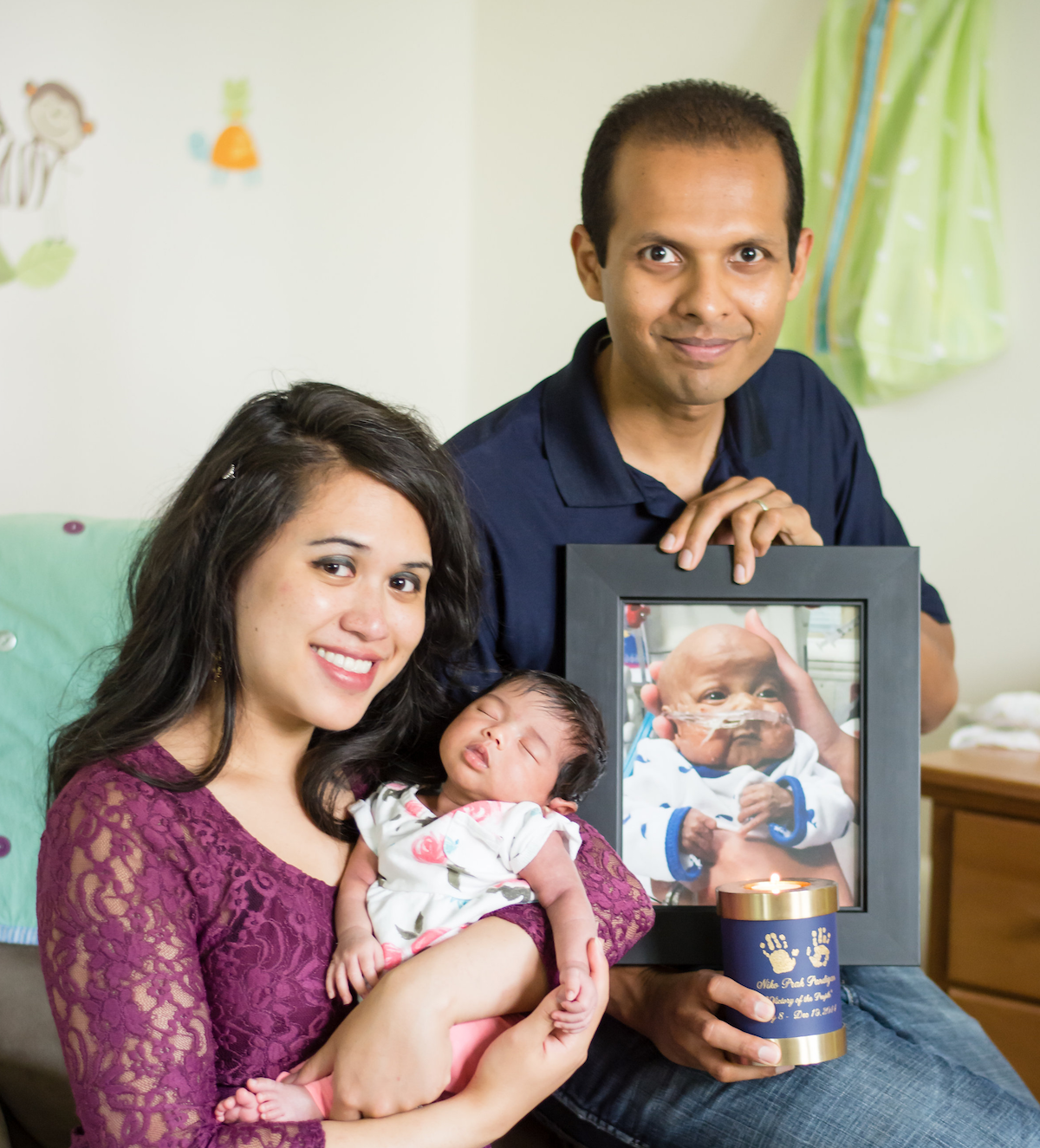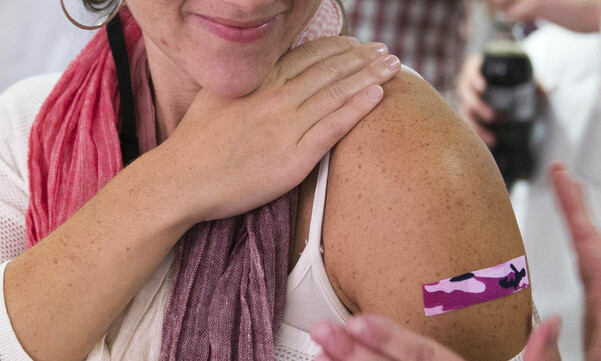Moline Prak Pandiyan's son was born preterm and lived just five and a half months. After care from Duke Maternal-Fetal Medicine, her second child was born full-term.
A First Pregnancy, a Premature Baby
When Moline Prak Pandiyan became pregnant in 2014, everything proceeded normally. “At 20 weeks, we found out we were having a baby boy, and we were really excited,” she said. “At that doctor visit, we asked, ‘Is there anything we need to be concerned about?’ The doctor said, ‘Baby names and diapers.’ That was it.”
But a few weeks later, Prak Pandiyan went into preterm labor. Little Niko was born at 23 weeks, 6 days’ gestation. He weighed 1 pound, 6 ounces. “He was a very strong boy,” said Prak Pandiyan. “He survived a lot of challenges: two surgeries, two brain hemorrhages, countless infections.” But after five and a half months, Niko’s tiny body couldn’t fight any longer.
After his death, Prak Pandiyan and her husband, Gautham, focused on grieving their beloved son. They also knew two things: They would try for another baby in the future. And they would seek to unravel the mystery of Niko’s premature birth.
Extra Care to Prevent Prematurity
Well before they were ready to try again, Prak Pandiyan and her husband met with Dr. Amy Murtha, MD, who was a Duke maternal-fetal medicine specialist at that time. “She was very empathetic,” Prak Pandiyan said. “The first thing she said was, ‘You went through hell!’ That acknowledgment was very important to me.”
Pandiyan learned there were several things that could be done to help reduce the chance of another premature birth. That’s the goal of the prematurity prevention clinic. It provides full-service care to mothers who are at high-risk for preterm birth throughout their pregnancy." The doctors are also present in the birthing center for their delivery.
When Prak Pandiyan became pregnant again, she began seeing the maternal-fetal medicine team at the clinic, where she received extra care and support. “I had additional ultrasounds,” Prak Pandiyan said, “just to keep a close eye on things.”
She also received weekly shots known as 17P. That is the common name for a progesterone shot that’s given to moms who have had a prior preterm birth. It’s been shown to reduce preterm birth by about a third.
As with her first pregnancy, things proceeded normally for Prak Pandiyan. But week 23—the gestational stage at which Niko was born—loomed as a critical point. “Dr. Murtha and her staff had shared with me that that’s usually the most difficult part of the pregnancy,” she said. “And, sure enough, that’s when I started having more questions and making extra phone calls to the team.” The clinic has a phone number patients can call 24/7 to reach a nurse or physician. “That helped a lot,” said Prak Pandiyan. “I was always able to access someone who could help answer my concerns.”
The clinic also provides women who have previously had premature babies with more frequent and longer visits with their doctors. “I think giving the patient an opportunity to speak to the physician in a more relaxed way helps reduce the stress of going through a second pregnancy, often after having been through something devastating,” Dr. Murtha said. Patients also receive nutrition counseling, social work support, and extra educational materials.

A Full-Term Baby, a Commitment to Awareness
Just two days short of what would have been Niko’s second birthday, Prak Pandiyan and her husband welcomed a full-term baby girl, Kaia. In the midst of their joy, they continue to honor their firstborn by working to raise awareness of preterm birth and the need for research into its causes.
“Preterm birth is a leading cause of infant mortality in the U.S.,” Prak Pandiyan said. “One in 10 babies in the U.S. are born prematurely and half of those are due to unknown causes.”
Dr. Murtha agreed that additional study is needed. “There are more babies born preterm in the U.S. than there are women diagnosed with breast cancer each year," she said. “Part of the problem is we don’t have a great way to identify moms at risk for preterm birth, especially those in their first pregnancy.”
Currently, the best way doctors have to identify moms at risk for having a premature baby is if they’re already had one. Race is also a factor: “African-American women have twice the preterm birth rate of Caucasian women,” Dr. Murtha noted. Other risk factors that have been cited include having a short cervix, smoking and experiencing stress. There’s also evidence it runs in families. “Some studies have found that if you were a preterm baby, you’re more likely to have a preterm baby yourself,” Dr. Murtha said.
For women who have had a preterm birth and are considering becoming pregnant again, Dr. Murtha offered this counsel: “Probably most important is to optimize your health and well-being for the next pregnancy. So, being at a healthy weight, exercising, not smoking, having a healthy diet. And then educating yourself about what things can be done in the next pregnancy so that we can set ourselves up for success.” She also recommended that women who have had a preterm birth seek high-risk pregnancy care to prepare for their next pregnancy.





